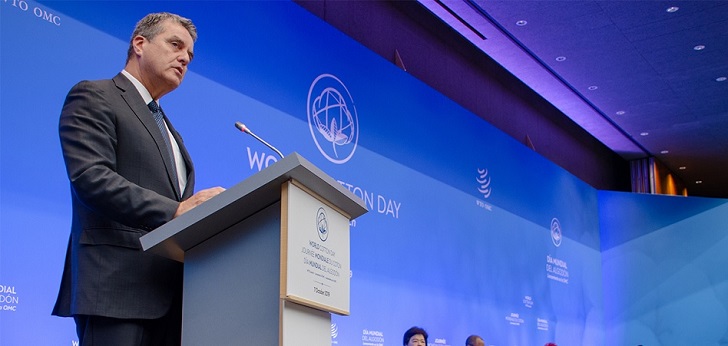African cotton 4 claim for more visibility and regulation in the global arena
Benin, Burkina Faso, Chad and Mali have requested formal recognition of a World Cotton Day by the United Nations General Assembly.

African cotton claims its rights. The Cotton 4 (C-4’s), Benin, Burkina Faso, Chad and Mali, attended yesterday to the World Trade Organization (WTO) during the World Cotton Day, where they claimed more control over subsidies of this raw material.
In the event, the economies committed to continue enhancing transparency and monitoring of cotton-related trade measures affecting the global cotton market, and they have also asked for more visibility.
In his speech, Roberto Azevêdo, general manager of the WTO, pointed the relevance of this raw material around the world. “Cotton is a truly global commodity. It is grown in over 75 countries across five continents,” pointed the executive.
“Yet many cotton farmers, particularly in less developed countries, struggle to reap the benefits of trade. Market access barriers diminish export opportunities,”pointed Azevêdo. That is why Benin, Burkina Faso, Chad and Mali, the Cotton 4, launched its initiative in the WTO in 2003 and now they are aiming to promote October 7 as World Cotton Day.
Azevêdo stated that in the WTO, the members have given several significant moves forwards, eliminating agricultural export subsidies and working “to enable developing countries to benefit more from every step of the cotton value chain.”
In this sense, minister Achta Djibrine from Chad reaffirmed the C-4’s commitment to the multilateral trading system and its continued efforts in pursuing outcomes on cotton at the WTO. She stated: “we are committed to multilateral negotiations to find fair, balanced and sustainable solutions to this thorny issue of distorting subsidies”.
“We urge WTO members to find solutions to the realities of millions of Africans unjustly deprived of the fruits of their labor; Chad favors a combination of a fair-trade approach and coordinated development assistance, which will ensure the sustainability of cotton sectors and will undoubtedly contribute to the sustainable development of African countries.” stated the minister.
In the same line, minister Moulaye Ahmed Boubacar from Mali reminded the WTO that African cotton represents less than 10% of the world production. “Despite its qualities, our fiber faces stiff competition, particularly from the estimated 5.9 billion dollars in domestic support in 2017/2018 some countries provided to their producers, resulting in the precariousness of our producers.”
The minister urged the WTO members to continue working on addressing this issue, bearing in mind the decision made by the WTO’s General Council in 2003 which confirmed the need to address cotton “ambitiously, expeditiously and specifically within the agriculture negotiations”.
The minister Shadiya Alimatou Assouman from Benin, underlined the contribution of cotton to the reduction of poverty, education, health care needs, economic growth and peace, dignity and prosperity. She also highlighted the huge social impact that cotton could generate along the value chain and beyond.
“Due to the stable development of cotton production and processing activity, young people and members of rural communities in the cotton growing areas are not tempted by the risky adventure of migration at sea and other makeshift means and routes of transport… It is often said that is when cotton is fine, everything is fine in the C-4 countries’',” she pointed.
On the other hand, minister Harouna Kabore from Burkina Faso stated that cotton remains to be more than 10% of GDP and is its main agricultural export. The minister described measures his country is taking to boost the processing and local consumption of cotton products. He also described efforts to fight counterfeiting through a national labelling strategy for traditional locally made products.


info@themds.com
Validation policy for comments:
MDS does not perform prior verification for the publication of comments. However, to prevent anonymous comments from affecting the rights of third parties without the ability to reply, all comments require a valid email address, which won’t be visible or shared.
Enter your name and email address to be able to comment on this news: once you click on the link you will find within your verification email, your comment will be published.